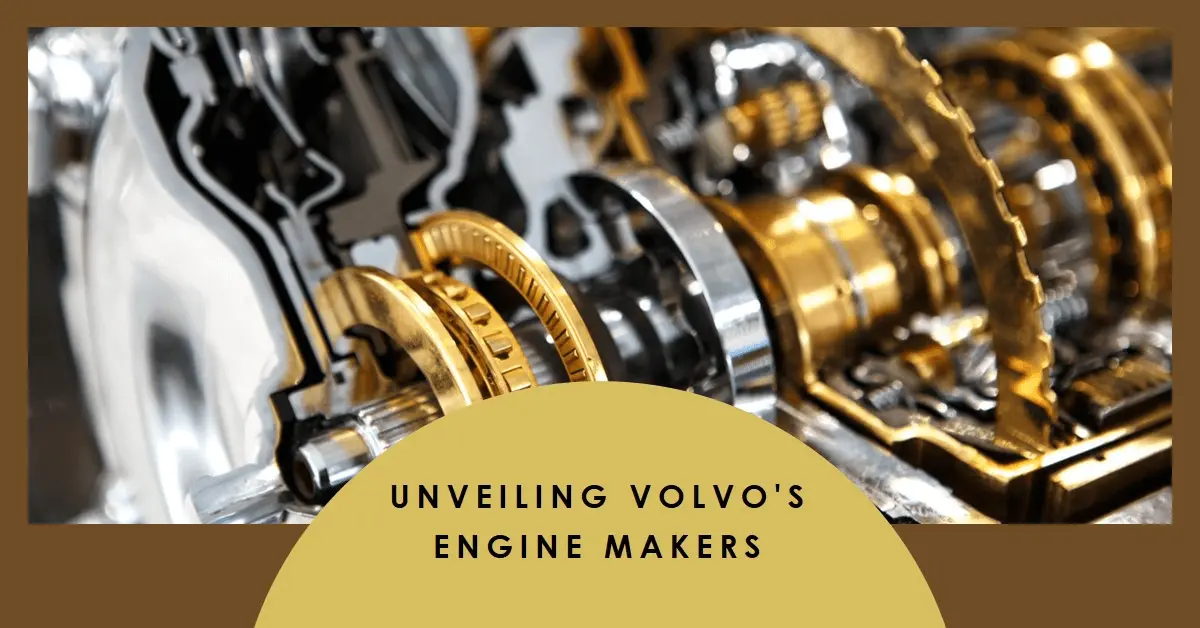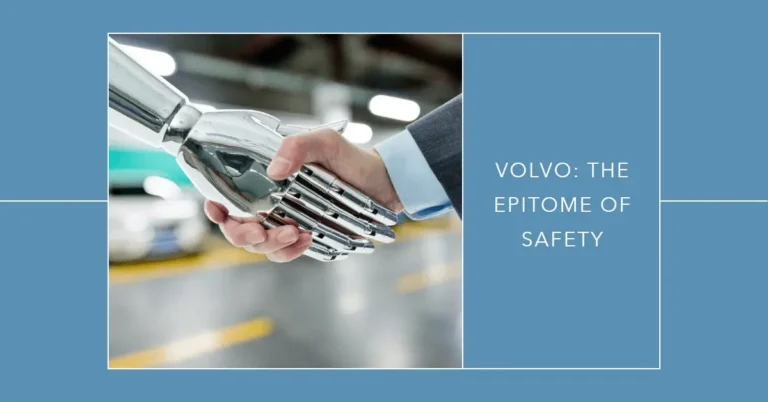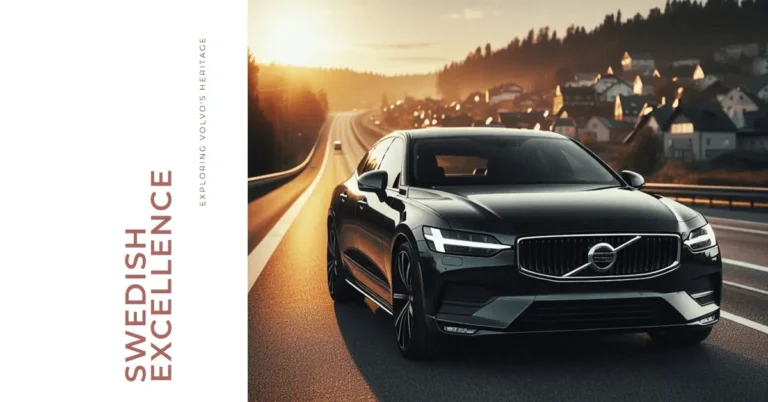Who Makes the Engines for Volvo? Everything You Need to Know
Ever wondered what’s under the hood of that sleek Volvo cruising down the street? You’re not alone! The world of car engines can be as mysterious as your aunt’s secret cookie recipe. But fear not, fellow car enthusiasts (or just curious cats), we’re about to pop the hood and peek at Volvo vehicles’ hearts.
So, who exactly makes the engines for Volvo? The short answer is that Volvo makes its engines! But hold your horses; there’s more to this story than meets the eye. Volvo Cars, now owned by the Chinese automotive giant Geely, designs and manufactures most of its engines in-house. However, like a plot twist in your favorite TV show, some interesting collaborations and changes have occurred over the years. Let’s dive in and explore the fascinating world of Volvo engines!
History of Volvo Engine Manufacturing
Early Developments in Volvo Engines
Picture this: it’s the roaring 1920s, and while most folks are doing the Charleston, a group of Swedish engineers is busy tinkering with engines. That’s right, Volvo’s engine story begins in Sweden, where the company first started producing cars in 1927.
Back then, Volvo was like that kid in school who always wanted to do everything themselves. They designed and built their engines from scratch, focusing on durability and performance. Because let’s face it, Swedish winters are no joke, and you need a reliable engine to get through them!
As time went on, Volvo became known for its unique five-cylinder engines. These bad boys were like the cool, slightly quirky cousin in the engine family. They perfectly balanced a six-cylinder’s smoothness and a four-cylinder’s efficiency. It was like having your cake and eating it too!
But as Bob Dylan once sang, “The times, they are a-changin’.” In the early 2000s, Volvo started to shift gears (pun intended) towards four-cylinder engines. Why? Well, it’s like swapping your bulky ’90s cell phone for a sleek smartphone – times change, and efficiency becomes key.
The Evolution of Volvo’s Engine Technology
Fast forward to 2013, when Volvo pulled a rabbit out of its hat by introducing the Volvo Engine Architecture (VEA), this wasn’t just any old engine design; it was like the Swiss Army knife of engines – versatile, efficient, and oh-so-clever.
The VEA engines came with all the bells and whistles. We’re talking turbocharging that boosts you faster than your morning espresso and hybrid capabilities that make Mother Nature smile. Volvo took everything cool about engines, threw it in a blender, and created something awesome.
But wait, there’s more! Remember those old Volvo Modular Engines? They started to bow out gracefully, making way for these new, hip VEA engines. It’s like when your favorite band replaces their old drummer – a bit sad but exciting to see what comes next.
Current Manufacturers of Volvo Engines
Volvo Cars and Geely Partnership
Now, here’s where the plot thickens. In 2010, Volvo Cars got a new parent company – Geely. It’s like Volvo went off to college and returned with a whole new perspective (and a Chinese accent).
Geely’s ownership has been like a shot of espresso for Volvo’s engine production. They’ve brought new ideas, investments, and a global perspective. One of the coolest things to come out of this partnership? The birth of the three-cylinder engines branded under the G-power name. These little engines are like the energizer bunnies of the automotive world – small but mighty!
Locations of Volvo Engine Production Plants
Volvo’s engine production is like a global potluck – there’s a bit of everything from everywhere. The main course comes from Skövde, Sweden, where Volvo’s been cooking up engines forever. But there are also side dishes from Zhangjiakou, China, and Tanjung Malim, Malaysia. It’s like a United Nations of engine production!
And let’s not forget about Volvo Penta – the cousin who’s really into boats. They’ve got their kitchen in Vara, Sweden, and Lexington, Tennessee, where they whip up marine and industrial engines. These engines are like the Navy SEALs of the engine world – tough, reliable, and ready for anything.
Technological Innovations in Volvo Engines
Volvo’s Focus on Sustainability
Now, let’s talk about Volvo’s green thumb. These folks are so into sustainability that they probably hug trees in their spare time. They’ve implemented life cycle assessments, which is a fancy way of saying they think about the environmental impact of their engines from cradle to grave.
But they don’t stop there. Volvo’s diesel engines are like the ninjas of the engine world – stealthy and clean. They use all sorts of cool tech like EGR (Exhaust Gas Recirculation), SCR (Selective Catalytic Reduction), and DPF (Diesel Particulate Filter) systems. It’s like they’ve given their engines a full spa treatment to clean up their act!
Electric and Hybrid Engine Technologies
Volvo’s not just dipping its toes in the electric and hybrid pool; it’s doing a full cannonball! Take the XC90 T8 hybrid, for example. This bad boy is like the mullet of cars – business (combustion engine) in the front, party (electric motor) in the back.
And Volvo’s not stopping there. They’re going all-in on battery tech and hybrid systems. They’re preparing for a future where cars run on good vibes and positive thinking (well, almost).
Performance and Reliability of Volvo Engines
Fuel Efficiency and Emissions Standards
Regarding following rules, Volvo engines are like that kid in class who always turns in their homework on time. They’re all about meeting (and often exceeding) those pesky U.S. EPA and CARB emissions standards. They’re playing limbo with emission levels – how low can you go?
But it’s not all about following rules. Volvo’s also about being smart with fuel. They’ve got tricks up their sleeve, like turbocharging and common rail fuel injection. They’ve taught their engines to sip fuel delicately instead of guzzling it down.
Reliability of Volvo Engines Compared to Competitors
Now, let’s talk about reliability. Volvo engines are like that friend who always shows up on time – dependable and consistent. When you stack them up against competitors like BMW and Mercedes, Volvo often looks pretty good regarding maintenance costs and reliability ratings.
But let’s keep it real – no engine is perfect. Volvo engines have their quirks, just like your eccentric uncle. Regular oil changes, timely belt replacements, and eyeing the cooling system are key to keeping these Swedish beauties purring like kittens.
Collaborations and Partnerships in Engine Development
Historical Use of Third-Party Engines
Here’s a fun fact: Volvo hasn’t always been a lone wolf in the engine game. There was a time when they played nice with others, using engines from Volkswagen and Peugeot-Citroën in some of their models. It’s like that time in college when you borrowed your roommate’s clothes for a party – sometimes, you have to work with what you’ve got!
These collaborations weren’t just random hookups. Volvo strategically decided to team up with other manufacturers for specific engine types. It’s like when you call in an expert for a tough job – sometimes you need a little outside help.
The Role of Geely in Modern Engine Production
Remember Geely, Volvo’s new parent company? Well, they’ve been more than just a sugar daddy. Geely’s ownership has been like a vitamin B shot for Volvo’s engine production. They’ve pushed for more efficient engines and brought some cool new tech.
Under Geely’s guidance, Volvo has been playing with advanced materials and connected engine technologies. It’s like Volvo engines got a smart makeover – they’re not just powerful but also brainy!
Future Trends in Volvo Engine Technology
Development of Connected and Autonomous Vehicle Engines
Hold onto your hats, folks, because Volvo’s diving headfirst into the future. They’re not just making engines; they’re making smart engines. We’re talking about engines that can communicate with the rest of the car better than some couples I know!
But it doesn’t stop there. Volvo is also flirting with AI and machine learning to optimize engine performance and emissions. It’s like they’re teaching their engines to think for themselves. Let’s hope they don’t become self-aware and take over the world, right?
The Transition Towards Fully Electric Vehicles (EVs)
Here’s the kicker: Volvo’s planning to ghost the traditional internal combustion engine. Yep, you heard that right. They’re going all-in on electric vehicles. They’re breaking up with gasoline and swiping right on electricity.
Volvo is investing a lot in electric vehicle technology. Shortly, we might see a lineup of fully electric Volvo cars Volvo cars. It’s like they’re preparing for a world where gas stations are as rare as phone booths!
Frequently Asked Questions About Volvo Engines
Do Volvo Cars Use BMW or Other Manufacturer Engines?
This is like asking if your favorite restaurant uses someone else’s secret sauce. The answer? Not really, at least not anymore. While Volvo has used engines from other manufacturers in the past (remember our VW and Peugeot-Citroën friends?), nowadays, they’re pretty much a DIY kind of company when it comes to engines.
However, it’s worth noting that in the automotive world, collaborations are more common than you might think. It’s like a big, complicated dance where everyone’s trying to find the right partner. BMW, Toyota, and others have their collaborations, but Volvo mainly sticks to its tune these days.
What Is the Most Powerful Engine Available in a Volvo?
Ah, now we’re talking! For all you power enthusiasts, Volvo has some muscles to flex. Their most powerful engines are typically found in their T6 and T8 configurations. These bad boys can pump 300 to 400 horsepower, depending on the model.
The T8 Twin Engine, for example, is like the Arnold Schwarzenegger of Volvo engines. It combines a turbocharged and supercharged four-cylinder engine with an electric motor. The result? A powerhouse that can zoom you from 0 to 60 faster than you can say “Swedish meatballs.”
Are Volvo Engines Environmentally Friendly?
If Volvo Engines were a person, they’d probably be that friend who always brings reusable bags to the grocery store and has a compost bin in their kitchen. In other words, yes, they’re pretty environmentally conscious!
Volvo is committed to sustainability in a big way. They’re not just talking the talk; they’re walking the walk. Volvo is trying to make Mother Nature proud, from developing more efficient engines to investing in hybrid and electric technologies.
But it’s not just about the engines themselves. Volvo looks at the whole lifecycle of their vehicles, from production to recycling. It’s like they’re playing a giant game of environmental chess, always thinking several moves ahead.
Case Studies: Volvo’s Most Popular Engine Models
Let’s zoom in on a couple of Volvo’s star players in the engine world. First up, we’ve got the engine in the Volvo S60. This sleek sedan often sports a 2.0-liter four-cylinder engine that’s been turbocharged, supercharged, or both! It’s like the engine equivalent of a triple threat – singing, dancing, and acting its heart out.
Then there’s the powerplant in the XC90, Volvo’s luxury SUV. The T8 Twin Engine in this beast is like having your cake and eating it, too. It combines a powerful gasoline engine with an electric motor, giving you the best of both worlds – power and efficiency when needed.
These engines showcase Volvo’s knack for innovation. They’re like the cool science experiments that work – proving that you can perform and be efficient in the same package.
Comparison: Volvo Engines vs. Competitors
Let’s have fun and put Volvo engines in a ring with their competitors. In one corner, we have Volvo; in the other, we’ve got heavyweights like Audi, Mercedes, and BMW.
When it comes to performance, Volvo holds its own pretty well. They might not always win the horsepower race. Still, they’re like that tortoise in the fable – steady, reliable, and often surprising you at the finish line.
In terms of efficiency, Volvo is often ahead of the pack. Their focus on smaller, turbocharged engines and hybrid technology puts them in a good position. They’ve figured out how to make a gourmet meal with fewer ingredients.
Reliability is where Volvo shines. While every brand has issues, Volvo engines are known for longevity. They’re like that old Nokia phone you had – not always the flashiest, but could it take a beating and keep ticking.
Ultimately, choosing between Volvo engines and their competitors is a bit like choosing between different flavors of ice cream. They’re all good in their way, but personal preference (and maybe a bit of brand loyalty) often plays a big role.
So there you have it, folks – a whirlwind tour of the world of Volvo engines. Volvo’s engine story is as interesting as impressive, from its Swedish roots to its electric future. Whether you’re a car enthusiast or just someone who wants to know what’s making your car go vroom, I hope this deep dive has been as fun for you as it has been for me. Remember, the next time you see a Volvo cruising down the street, you’ll know there’s more going on under that hood than meets the eye!







